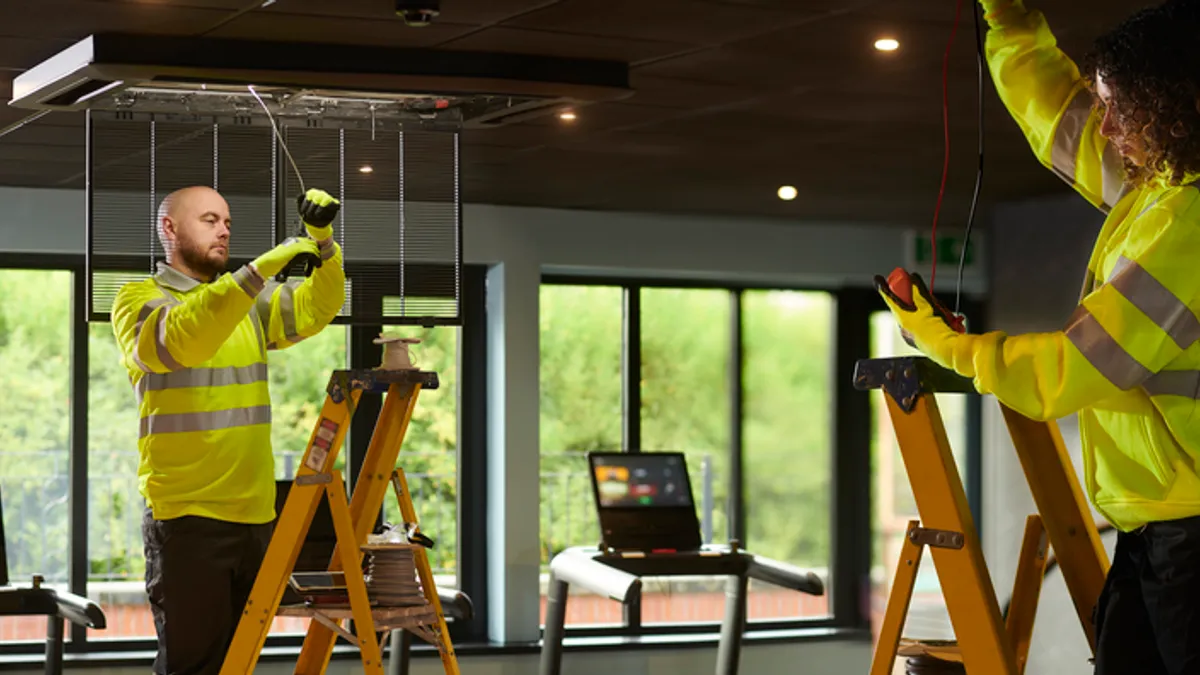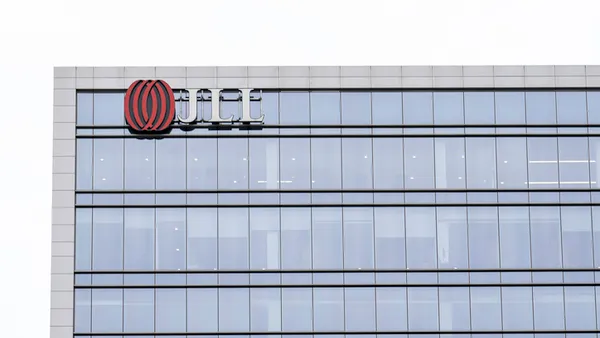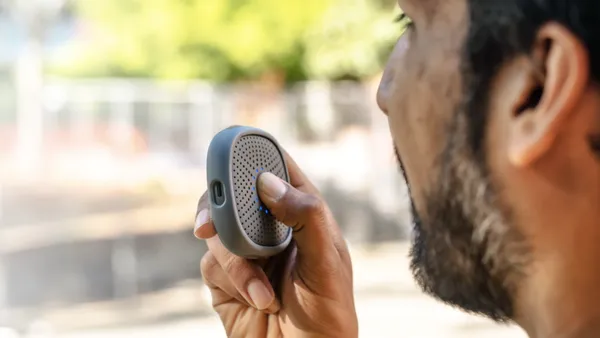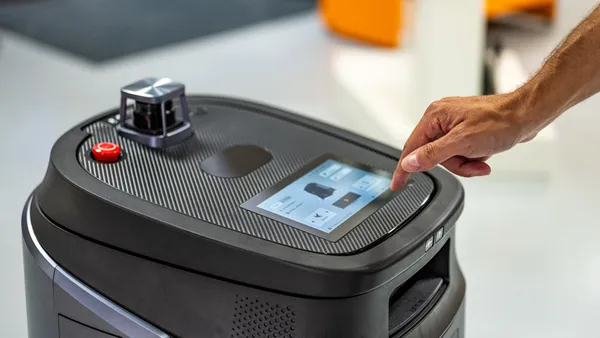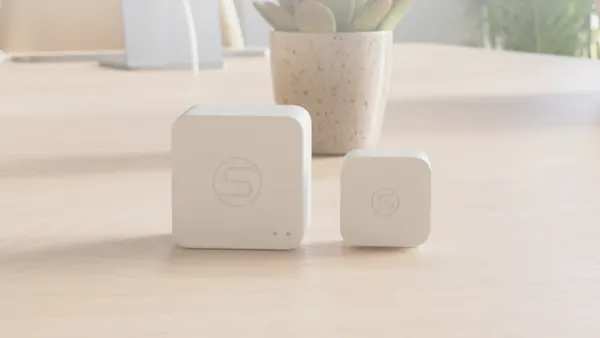Dive Brief:
- U.S.-based customers of MachineQ’s facilities management platform now have access to Laiier’s early water leak detection tool, Severn WLD, according to a press release Jan. 16.
- Severn WLD’s low-profile sensor transmits data via a long-range, wide-area network, or LoRaWAN, protocol to transmit leak detection information, which users can access from MachineQ’s sensor management platform.
- The partnership adds a less-conspicuous option to MachineQ’s existing portfolio of water leak sensors, Bryan Witkowski, head of product and strategy, told Facilities Dive. While MachineQ’s MQflex multisensor device and water leak rope can wrap around pipes, for example, Laiier’s smaller solution “is ideal for customer and guest-facing environments with heavy foot traffic where discretion is paramount,” Witkowski said.
Dive Insight:
Developing leak-detection tools in the internet-connected space “is surprisingly challenging,” Witkowski said, noting that aesthetics, false-positive results and customer tampering are among the concerns tools must address. Laiier’s approach to those concerns made it a good choice for a partnership with MachineQ, Witkowski said.
“This solution becomes an ideal choice for our customers, especially those in hospitality. Plus, from a strategy perspective, we are in alignment regarding simplicity and scale, and we can offer both by integrating the sensor data into our MQinsights visualization application to provide customers with a more centralized view of the data,” Witkowski said.
Severn WLD uses a thin, flexible sensor embedded into adhesive tape that sticks to a variety of surfaces, such as pipes and the base of a cabinet, Laiier says. It can be cut to size or extended, and installation does not require tools. The sensor can detect as little as two drops of water, Laiier says, sending data about the leak across the LoRaWAN network back to the MachineQ platform. Users can set individual sensors with different sensitivities to customize them to fit how the monitored area is used, thus mitigating false positives. The product is battery-powered, with an average battery life of six years, Laiier says.
MachineQ, which is part of Comcast, focuses on hospitality, foodservice, health and life sciences facilities, with its broader portfolio providing solutions for space utilization, air quality monitoring, asset tracking, bedbug detection and more.




